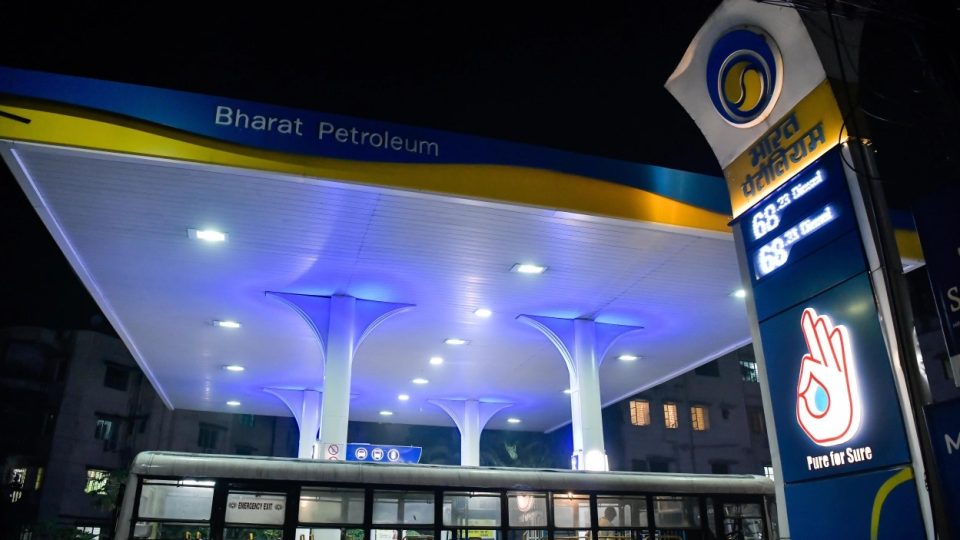Bharat Petroleum Corporation (BPCL) is about to issue a rights issue worth Rs 17,000 crore in tranches, heralding an equity injection by the state oil marketing company to fund its carbon reduction programme.
During the process, as a promoter, the government will invest Rs 9,000 crore in the company, a senior official told HNW, adding that this will not increase the government’s stake in the company.
BPCL’s board will meet on June 28 to consider capital injections to meet energy transition, net-zero emissions and energy security goals. Shares of BPCL closed at Rs 359.5 on the BSE on Friday, down 3.74% from the previous close.
“BPCL will receive about Rs 9,000 crore in tranches from the government as it is conducting a rights issue of about Rs 17,000 crore,” the official said. The centre owns 52.98% of the fuel retailer and refiner.
In the 2023-24 budget tabled on February 1, the government announced an equity capital investment of Rs 30,000 crore in three OMCs, Indian Oil Corporation (IOC), BPCL and HPCL, to achieve energy transition and net zero goals. As the largest state-owned OMC, the IOC will get the lion’s share.
The amount of the IOC’s equity injection (possibly also via a rights issue) will be determined shortly.
The IOC and BPCL require capital support through loans, given the market’s sensitivity to the government increasing its stake in these companies following the equity injection. However, the government believes a rights issue can address their concerns, as its stake will not increase.
The government’s direct/indirect stake in the three state-owned retailers, which provide more than 90% of the country’s fuel supply, is about 51% each, the minimum requirement to be classified as a state-owned enterprise. The centre owns 51.5% of IOC, while ONGC, the country’s largest state-owned exploration company, owns 54.9% of HPCL.
In HPCL, the centre may inject funds through a preferential rights issue, media reports added.
The centre has announced capital investments in OMC’s refinery upgrades and emissions reduction projects, such as hydrogen plants.
Unable to fully pass on the impact of high global crude oil prices to consumers, BPCL’s FY23 net profit fell 79% year-on-year to Rs 1,870 crore, while IOC’s net profit fell 66% to Rs 8,789 crore. HPCL reported a loss of Rs 8,974 crore in FY2023, compared to a net profit of Rs 6,383 crore in FY2022.
All three companies posted losses in the first two quarters of the last fiscal year, with subdued net profits in the third quarter but sharply higher profits in the fourth quarter ending March 2023.
Given the crude oil price slowdown, OMC will likely report solid profits in the current and next quarters (Q1 and Q2FY24).
The government’s plan to privatise BPCL failed in FY22, mainly due to uncertainty in the global hydrocarbon market and a lack of pricing freedom by state-owned OMC.



